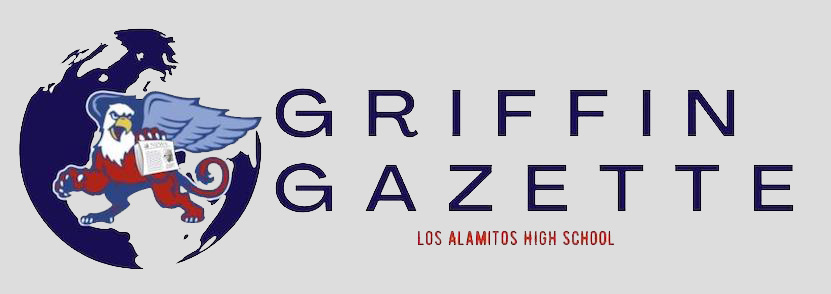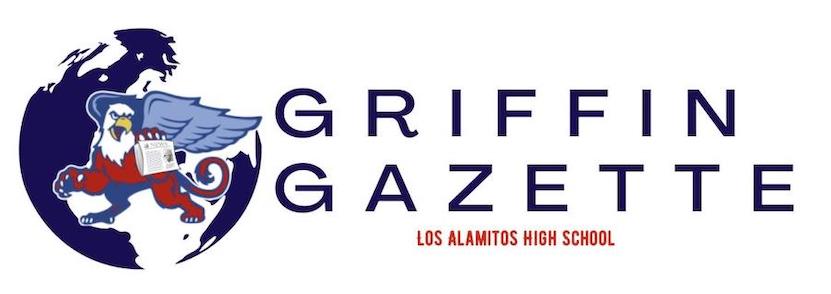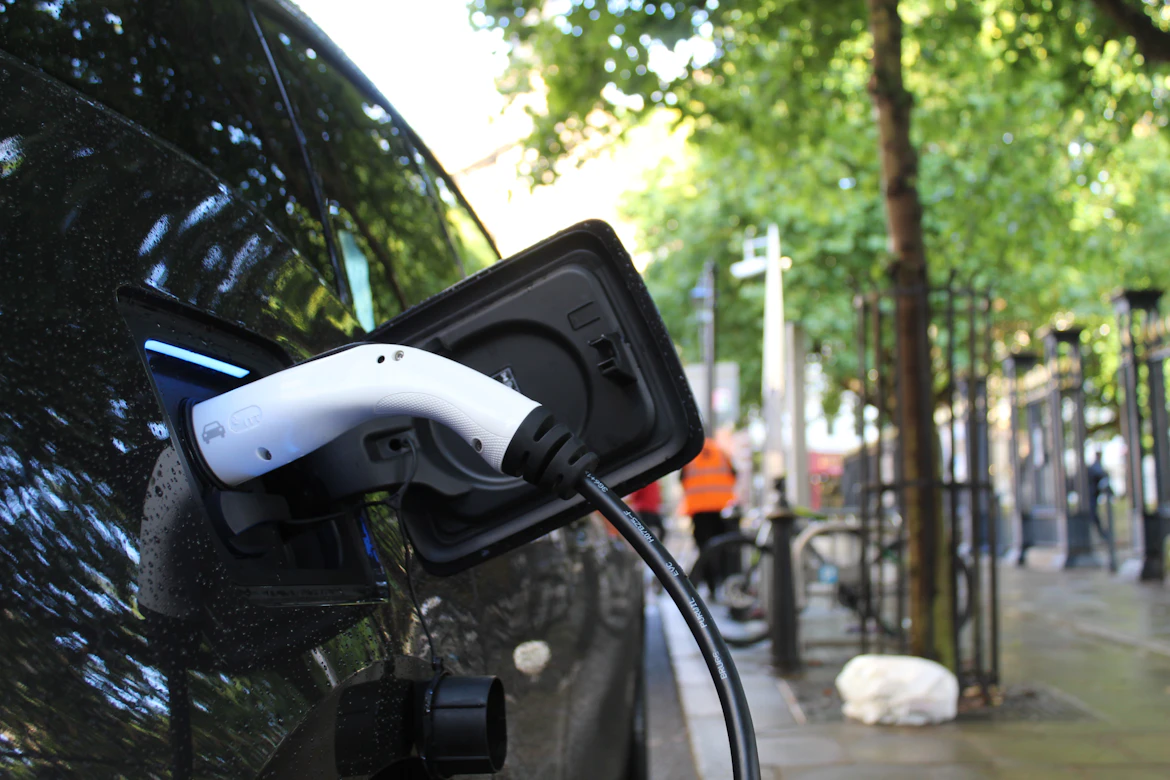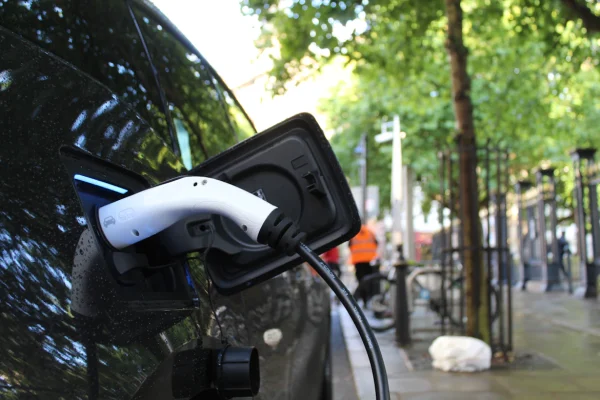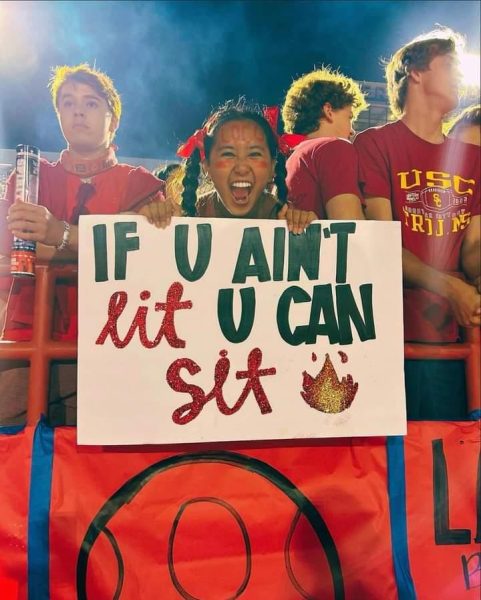Indictment of Donald Trump: The facts
A look at the historic case of Donald Trump
An AI image generated to represent Donald Trump in a court room
April 7, 2023
LOS ALAMITOS, CA — Thursday, March 30, 2023, will go down in American history. That is the day that former President Donald Trump was indicted in the state of New York. This is the first time in history that a United States President has been indicted for a crime.
First, what is an indictment? An indictment is a formal charge of a serious crime. This doesn’t mean that the defendant is guilty, just that the case has been picked up by a judge and is going to have a court case. In this particular case, Manhattan district attorney Alvin Bragg brought a case of 34 counts of falsifying business records. This case was then brought before a grand jury and approved on March 30. Each count is a level E felony that has a maximum jail time of four years.
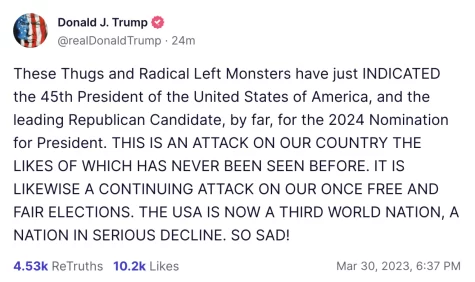
The charges against Trump relate to reimbursements for Trump’s former fixer, Michael Cohen for the hush money payment to adult film star Stormy Daniels. In 2006 Daniels, whose real name is Stephanie Clifford, alleged that she had sex with Trump at a charity golf tournament. In 2016, a few days before election day, Daniels received $130,000 from Cohen to stay silent over her affair with Trump. Cohen plead guilty to crimes related to the hush money payment and spent 3 years in prison. Daniels has also stated that she felt both legally and physically threatened to remain silent. She recounted a time in 2011 when she was going to tell the story to In Touch magazine. She was approached by a man who threatened her.
“That’s a beautiful little girl,” the man said. “It’d be a shame if something happened to her mom.”
Trump denies that he had any relationship with Daniels to this day.
The reasoning for the charges is Trump’s suppression of the $130,000. Bragg claims that Trump falsified business records in order to hide the transaction.
An official statement from Bragg stated, “Donald J. Trump repeatedly and fraudulently falsified New York business records to conceal criminal conduct that hid damaging information from the voting public during the 2016 presidential election.”
This is not the first time a president has faced campaign violations. Barack Obama was charged $375,000 for not reporting on around 1,300 last minute donations for almost $1.9 million. However, the difference between Obama and Trump is the intent. Obama accidentally had a violation whereas the DA’s office is claiming that Trump intentionally mishandled funds and tried to cover them up.
On Tuesday, April 4, Trump was officially put under arrest and faced the judge. During the hearing, Trump plead not guilty to all charges and didn’t give a statement while in New York. No videos were allowed to be taken while the hearing occurred and photographers were only allowed before the hearing officially started.
One thing that some people are confused about is why this case is the first to be charged. Trump has three other cases that are currently being pursued: his involvement in the Jan. 6 riot at the capitol, his attempt to change the results of the presidential votes in Georgia, and his mishandling of classified documents. All of these cases are agreed to be stronger than the finance case, so why is the weakest case leading the charge? The general opinion is that it is the oldest, relating to events from 2016-2018, and therefore has had the most work already put into it.
Most news outlets and reporters don’t believe that this case will amount to much of anything. Carrie Cordero, a former counsel to the U.S. Assistant Attorney Journal, described the case as a little underwhelming on CNN. The main thing that this case does is send a message. Trump is not above the law.
